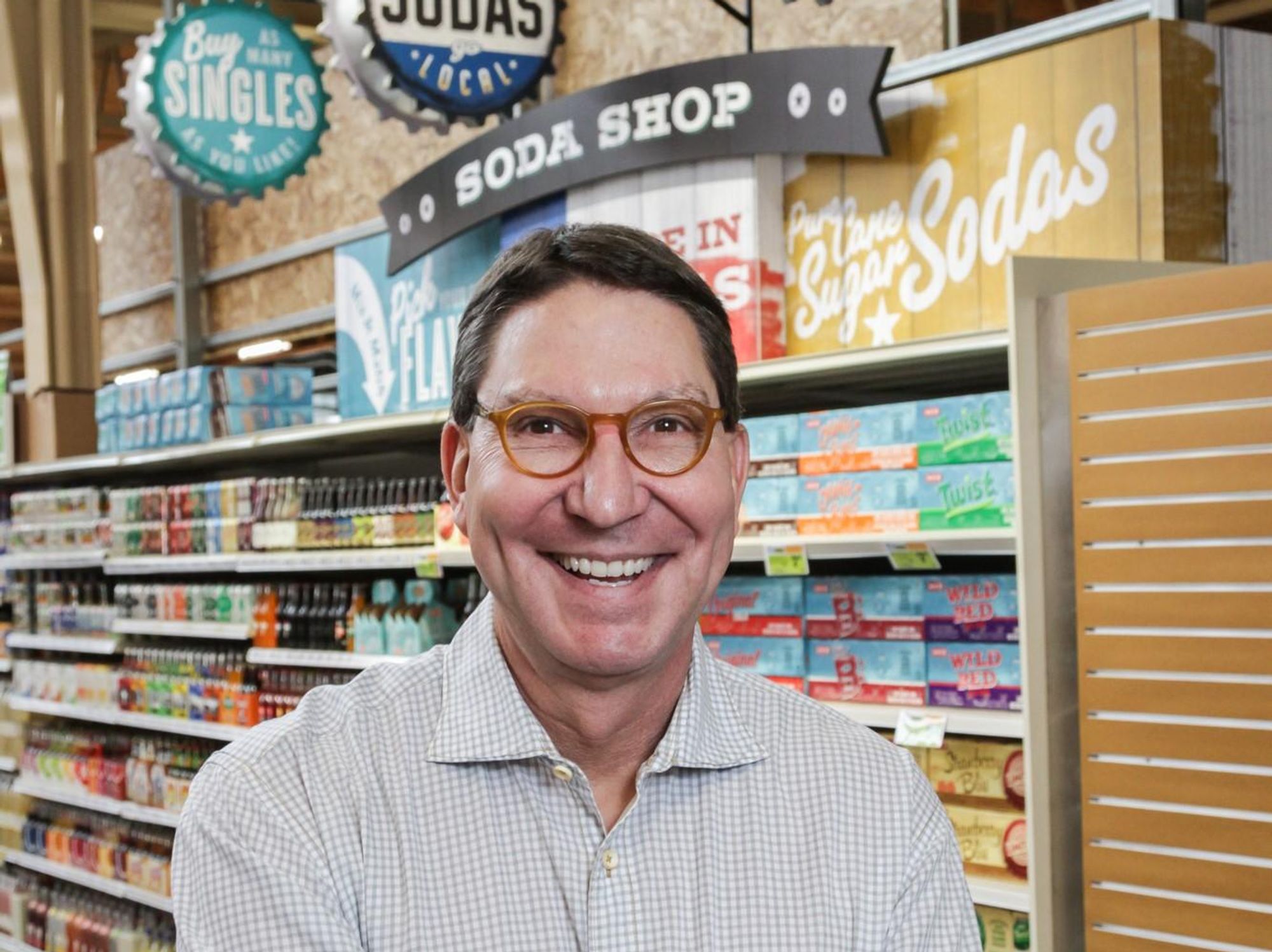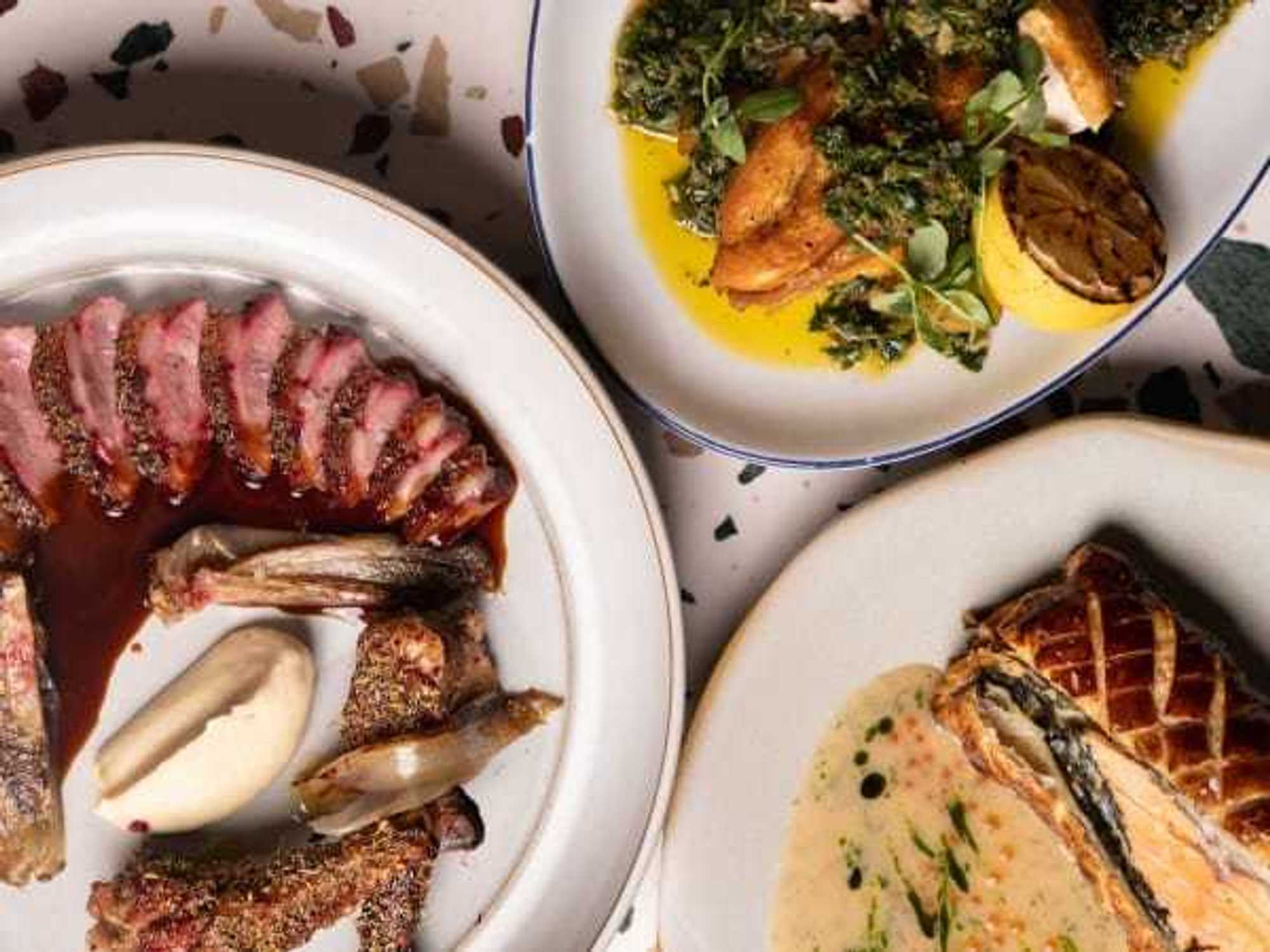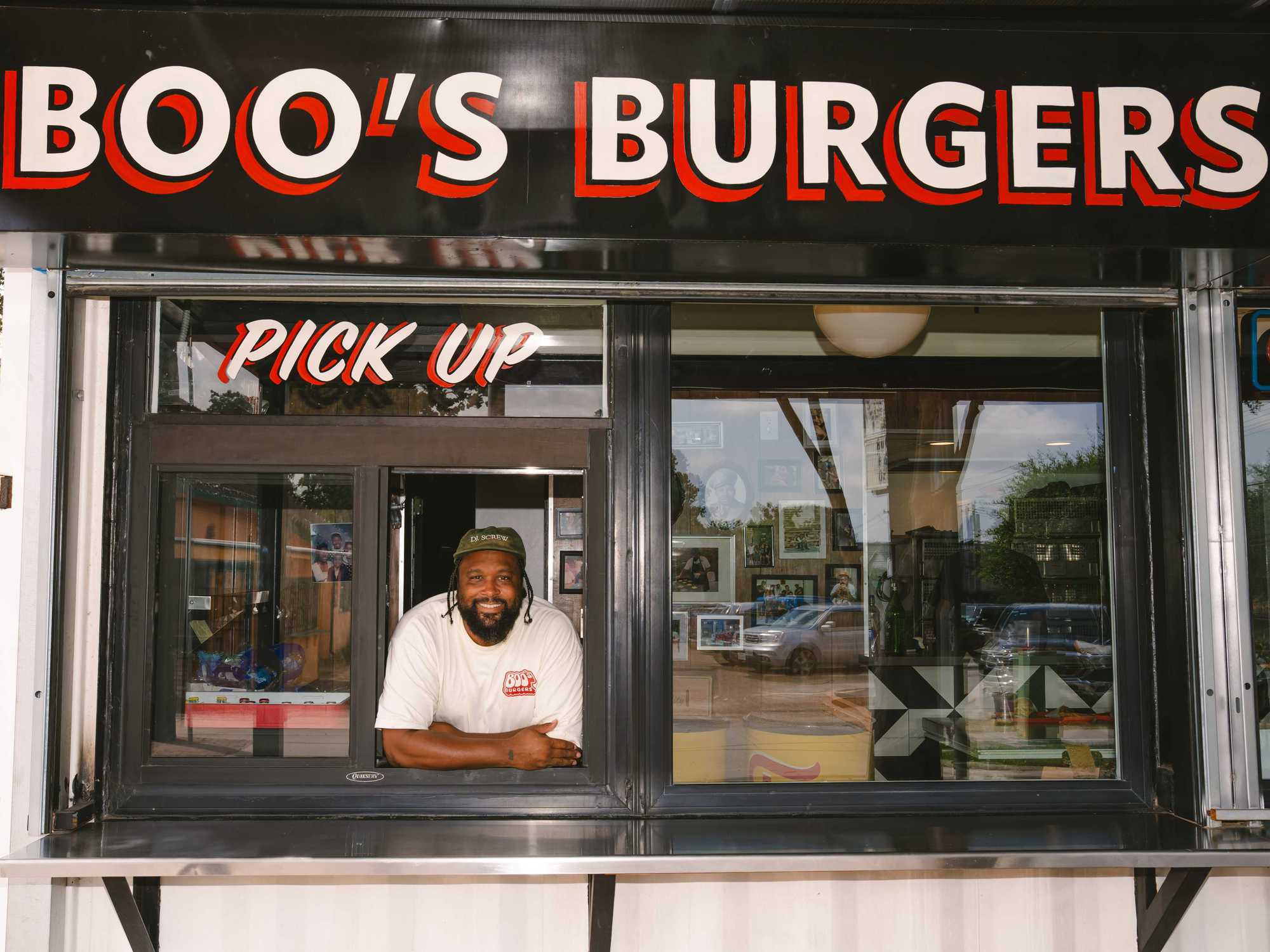great scott
H-E-B's charming frontman Scott McClelland keeps the faith in revealing new public Houston event

McClelland, the smiling face of H-E-B, talks faith and more.
Charming, impossibly humble, and wildly successful, Scott McClelland has become nearly as recognizable to H-E-B customers as the grocery store’s red logo — and that’s not exactly by his choosing.
A 31-year presence at Texas’ favorite grocery store, McClelland is beloved by fans for his charismatic presence as the “H-E-B Guy” in hilarious Houston commercials, starring alongside sports celebs such as José Altuve, Alex Bregman, and former Houston Texans superstar J.J. Watt.
But McClelland’s TV persona as an aw-shucks and comically silly foil to sports stars — one that he crafted — belies his razor-sharp acumen for serious business growth, demographic understanding, and attention to detail.
As the former president of H-E-B Food and Drug, McClelland deserves considerable credit for the store’s $32 billion in sales and its recent rank as No. 5 on the list of biggest privately owned companies in the U.S. (The Lone Star State-based chain also boasts outposts in Mexico.)
But, the man who shocked many by announcing his retirement at the end of the year (he tweeted his chat with his longtime friend and CultureMap columnist Ken Hoffman when he shared the news) chooses instead to deflect credit to his colleagues.
“I think I’ve had influence on a lot of different areas at H-E-B,” McClelland tells CultureMap as he drives to an H-E-B location. “But frankly, I’ve been part of the team, and taking a lot of individual credit is just not something that I really have a lot of interest in doing. "
“What I take pride in is that H-E-B has been able to be successful. We’ve been able to create more good jobs and careers and livelihoods for people. I can’t take sole credit for that. I was one cog in a wheel of a lot of people that did a lot of work collectively. I think we’ve taken a lot of pride and joy in having been able to do that. But, our accomplishments have been way larger than one individual.”
This trademark humility will be on display when McClelland takes the stage to kick off the “Faith in Work” series at St. Luke’s United Methodist Churchon Monday, October 3 (3471 Westheimer Rd.).
At the free, public event, which starts at 6 pm, McClelland will share his story of work and faith and how the two have intersected over his lifetime, from his early days in Southern California and inner-city Los Angeles, to his move to Texas as a difference-maker at Frito-Lay and then H-E-B, where he remains as senior advisor directing store launches in Dallas-Fort Worth.
Agreeing to an interview only if we don’t make him out “to be bigger than life,” McClelland shares his thoughts on work, faith, Mount Everest (read on), and his favorite Houston restaurants.
CultureMap: Congratulations on your success and impending retirement. We hear you’re training to climb a certain mountain right after this St. Luke’s presentation?
Scott McClelland: Thank you, yes I’m going with five other guys to climb to the base camp on Mount Everest the next day. My motivation — and frankly, moving into retirement — is when you’re young you have physical ability but you don't have any time or money. When you get older, you have time and if you’re lucky, you'll have some money, but you start to lose your physical ability. I think I have a window of time where I can do some things that I've always wanted to attempt to do.
CM: Is it fair to say you’ve climbed a few mountains in life?
SM: Yeah, I think we all have goals that we set for ourselves that aren't necessarily easy to attain. Whether it's a successful, 42-year marriage, or work, I think it’s really about trying to live the best life that one can.
CM: You’ve ensured that others can live their best lives, too.
SM: Really, I’ve gotten to work with so many great people at H-E-B and I think at the end of the day that HEB allows you to be a bigger person than you thought you could be. And you know, H-E-B has contributed to me in my life, and I’ve just tried to pay that forward and help people develop their careers and their lives.
CM: What’s fascinating is your ability to create empathy and understanding. Can you tell us about what could be described as a ‘$52 challenge?’ at H-E-B?
SM: When we promoted a store manager, we would give them $52 and ask them to buy groceries for a week, because that's what a food stamp recipient receives. You realize that you have to make some fundamental choices. When you go through this exercise, what you come to realize is that you're buying calories and you've got to fill your family up and it's expensive to eat home.
So as a result when you're poor, you're going to have to eat hot dogs and you're going to have to eat ramen and you aren't going to have the best cuts of meat — you have to make sure you get meals on the table that'll keep your family full. Poor people have the same desires as you and me: They want to eat cookies and ice cream.
Just because you're poor doesn't mean that you want to live without being able to enjoy different things. When you go in and study this, and you spend time with people, you understand the fundamental challenges that they have in their life. I think, as a result, it allows you to be a student of the human process, as opposed to judging.
CM: Does your ability to empathize with those less fortunate come from your days in Los Angeles?
SM: My dad grew up in a house with no electricity and no running water and moved to California from a farm and the day after he graduated from high school. And while he wasn't overly successful, given what he had to work with, he was a very good provider. He owned a laundry in South Central L.A. and, and as such, we dealt with lower-income customers. So while I didn’t grow up in the ’hood, I certainly grew up involved in the ’hood, because that's where my dad's business was and I worked there.
As I came to H-E-B, I was so lucky to work for a company that wants to build stores everywhere. Not just in suburban areas or high-income areas, where frankly, it's easier to make money, but rather make sure that we provide good food to everybody across the city.
CM: What does faith mean to you — at work and in life?
SM: I think if you start to think about faith, it’s important to be accepting of others and leading a more Christ-like life, one that appreciates that we’re all challenged in some way and we’re all imperfect and that it's important to embrace each other. I think it’s really about a faith-based perspective, as opposed to me being better than someone else because my faith is different than yours or the way in which I live my life.
I think we would be better off to look at how we can create a rising tide, where everyone is able to grow in our country.
CM: It seems that you’re talking more about faith than religion.
SM: Yes, I think that a lot of people today get tied up in religion when in reality, what the world needs today is less about the details associated with religion and more importantly, the walk of faith.
CM: Your walk of faith with H-E-B is coming to an end. Have you given any thought about your legacy, as you plan your next step in life?
SM: I haven’t really given much thought to my legacy. I've always said that the day you stop being curious is the day that you start to die. So, I won't be working for H-E-B anymore and I don't necessarily know what I will be doing. But, I will be investing more time with my family.
I think by remaining curious about things that you're able to uncover things of interest to you — and things of interest to the community that might be able to leave the world a better place.
CM: Speaking of the world, it’s a little amazing where you’ve been recognized.
SM: I was in India, and a man said, ‘hey, you’re the H-E-B Guy.’
CM: As someone who works in food and groceries, you enjoy Houston’s robust dining scene. What are some of your favorite haunts?
SM: Oh, without a doubt Kiran’s at the top of the list; she’s one of my favorite people. Kiran’s wins on two fronts: the food is great and she's lovely. It makes me want to go back there all the time. I also love Kata Robata.
CM: What do you hope to impart with this talk?
SM: You know, I'm just like most other people in that I get up in the morning and try to be the best I can at work and put my family first. Along the way, I've had some luck and I've gotten to meet a lot of interesting people.
From that, I've been able to build on some guiding principles for myself that have helped me, and to the extent that might help some other people, I am certainly happy to do that.
I’m not sure that I’m a model that everyone else should follow. I’m just happy to share a couple of things that I've learned along the way that I wish somebody had talked to me about.
-----
For more information on McClelland’s discussion, visit www.stlukesmethodist.org.
This interview has been edited for length.

 Boo's Burgers chef-owner Joseph Boudreaux is a Rising Star nominee. Photo by Michael Anthony
Boo's Burgers chef-owner Joseph Boudreaux is a Rising Star nominee. Photo by Michael Anthony